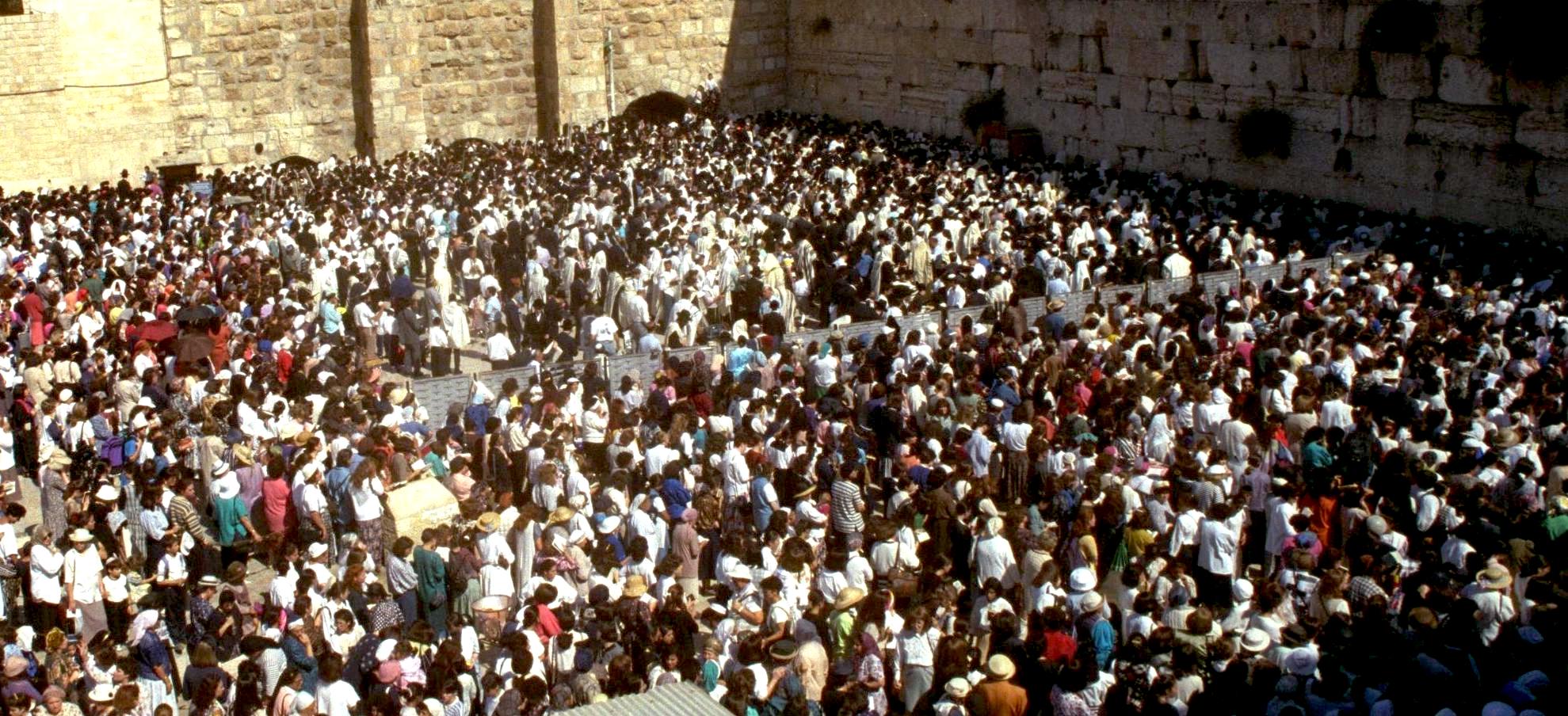Last class we reviewed the ninth blessing of the Shemoneh Esrai, focusing on our request for sustenance and examining how that blessing is more than just a superficial request for our monetary needs. Today, we will review the tenth blessing overall and move on to a new set of requests in the Shemoneh Esrai, focused on the communal request. As always, let’s first review the actual text of the blessing:
“Sound the great shofar for our freedom, raise the banner to gather our exiles and gather us together from the four corners of the earth. Blessed are You, HaShem, Who gathers in the dispersed of His people Israel.”
Although davening with Kavannah is always difficult, the tenth blessing of Shemoneh Esrai may even be more difficult than the preceding blessings. Before now, we had focused on personal requests, items that may be closer to the heart. We asked for intellect, for forgiveness for our sins, for health, and then material prosperity. But now, as we move on in our davening, we begin asking for communal blessings. Though this set of requests may not be as close to the heart, they are equally – if not more – powerful and important.
For instance, Rabbi Mordechai Potash, in his book Making the Most of Prayer, quotes the Abudraham in noting that each of the six blessings of personal requests correspond to a communal request. The Talmud (Brachos 33(a)) tells us that the first personal request – our request for intelligence – corresponds with this 10th blessing, the request to be free from exile. What is the connection? One who is able to truly obtain intelligence understands that while personal health and personal prosperity is important, our real focus should be the request for the Jewish people to be free from exile.
That focus is also why, in the blessing itself, we ask to be gathered together. Rabbi Avigdor Milller, as cited by Rabbi Avrohom Chaim Feuer, explains that when we pray for G-d to gather us together, it is not enough for us to merely hope that we will be physically gathered together out of exile. We must also put aside our spiritual and ideological differences so that the entire Jewish people can be gathered together, truly as one.
Rabbi Feuer also makes another fascinating observation about this blessing that may help us internalize it from a personal perspective as well. Citing the Meshech Chochmah, he asks why the blessing needs to ask for the great shofar to sound and for the banner to also rise. Would the sound of the shofar not suffice to gather the exiles? Why do we need to raise the banner as well?
Unfortunately, the Meshech Chochmah says, the sound of the shofar is not enough for most. For many, life is comfortable as we currently live it and even the sound of the shofar may not be enough to convince us to move. Indeed, how often in our own lives do we pass on the spiritual option in order to choose the more comfortable option. How easy is it to choose a TV show over the Daf Yomi shiur or a late breakfast over a morning minyan? As we recite this blessing, let’s also pledge to work on being the type of person for whom only the shofar is needed – who is eager to shed the easy and comfortable option in service of G-d.


